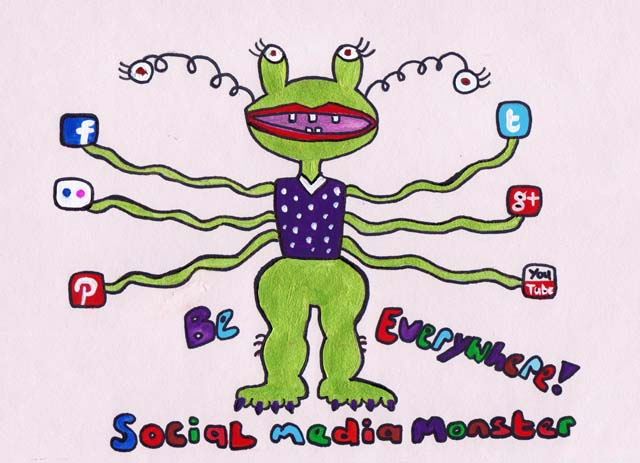A report by Dr. Jenna L. Clark of Duke University and colleagues, published in a recent issue of Current Directions in Psychological Science, presents a framework aimed at explaining conflicting findings on technology-mediated communication’s effects on users’ well-being. Prior research has produced mixed results, with some studies finding links between online communication technology use and reductions in well-being, and others seeing connections to increased well-being. Clark and her team propose that these seemingly incompatible findings can be understood by focusing on how such technology is being used – in particular, whether or not individuals are using social network sites to enhance meaningful connection.
The authors suggest that “social network sites benefit their users when they are used to make meaningful social connections and harm their users through pitfalls such as isolation and social comparison when they are not.”

The authors explain that concerns have been raised about the danger emerging communication technologies pose to meaningful social interaction throughout these technologies’ evolution; the internet and social network sites simply represent one of the most recent developments in this trend, which back to the time of the telegraph. Given these longstanding concerns about how technology alters our social worlds, some researchers have aimed to investigate how the internet and social network site use affect users’ social connection and well-being, with mixed results.
One early study of the effects of internet use found that higher Internet use was connected to users’ shrinking social networks, reduced communication with family members in the home, and heightened depression and loneliness. However, when the researchers followed up with these participants three years later, they found that the earlier adverse outcomes had disappeared, and a second longitudinal study by the same team found that internet-using participants experienced increases in well-being. These are just two of a number studies with opposing findings on online communication and well-being.
Clark and co-authors attempt to account for these divergent findings by presenting a framework that explains social network site use’s effects on well-being as a function of individuals’ use patterns and motivations for use. The authors choose to focus on social network site use in particular given the sites’ massive upsurge in popularity in recent years, although they note that their model could be extended to other forms of mediated communication as well. They propose that social network site user outcomes depend on the extent to which use of these sites emphasizes “promoting connection.”
“Whether behavior on social network sites is good or bad for well-being depends on whether the behavior advanced or thwarts innate human desires for acceptance and belonging,” the researchers write.
The authors provide an overview of the research literature on the relationship between social network site use and higher and lower well-being, detailing how their framework helps account for both findings. They argue that findings showing links between site use and reduced well-being can be explained by individuals’ use of these sites in ways that do not meet acceptance and belonging needs. They suggest that there are two common traps for non-fulfilling use of these sites – isolation and social comparison – both of which can occur in the context of offline social interaction as well.
Studies have found connections between social networking sites such as Facebook and user loneliness. The authors suggest that social network sites may serve to increase feelings of isolation if they are used for what they call “social snacking” – that is, quick, unfulfilling attempts to meet social needs, such as scrolling through Instagram feeds. Social comparison is another possible mechanism by which acceptance and belonging needs can be thwarted through social network use. Indeed, social network sites offer endless opportunities to engage in social comparison. One study found that those who make regular social comparisons experience negative outcomes including increased feelings of guilt, envy, regret, and defensiveness and a higher likelihood of lying, blaming others, and having “unmet cravings.”
Conversely, when people use social network sites in ways that enhance connection, they may experience benefits to well-being as a result of having their acceptance and belonging needs successfully met. They point to a large body of research that has found that healthy relationships play an important role in well-being, influencing “happiness, health, and even longevity,” as well as findings that self-disclosure and relational acceptance strengthen relationships. Self-disclosure, they suggest, plays an important role in the meaningful, connection-supporting use of social network sites and online communication more generally, particularly given that studies have found that online self-disclosure is “at least as meaningful and frequent as face-to-face self-disclosure.”
“If social network sites can be used to strengthen relationships by increasing intimacy, and strong relationships are linked to well-being, then social network sites should boost well-being to the extent that they are used in the service of connection.”
In closing, the authors write that their proposed framework, which focuses on “behavior and motivation,” can be applied to understand other forms of “mediated communication” beyond just social network sites. They write,
“If social network sites are to function as constructive tools that foster healthy relationships, researchers must focus on identifying further beneficial and detrimental behaviors for users of these sites and disseminating this knowledge to inform their actions and decisions.”
****
Clark, J. L., Algoe, S. B., & Green, M. C. (2017). Social Network Sites and Well-Being: The Role of Social Connection. Current Directions in Psychological Science, 0963721417730833. (Link)















A very balanced article. Your phone is like your mirror, you choose your reality. You choose the apps that you download and the websites that you visit and the news sources you read, and the podcasts or music you listen to. Just like an actual mirror, it can cause you difficulties if you have difficulties relating to your self. The mirror can also be extremely useful to help you get things done that help you be more social.
Report comment
No mention here of the effects of having one’s most intimate personal information in the hands of Facebook for distribution to whomever has the $$.
Report comment
It’s strange to argue about the harm caused by social networks. I mean, c’mon, internet as a modern means of communication is an integral part of our today life. There is almost nothing to worry about. And I tell you more. If you want to increase a social circle you can read about one of the ways which is about buying instagram followers review. Enjoy communicating!
Report comment